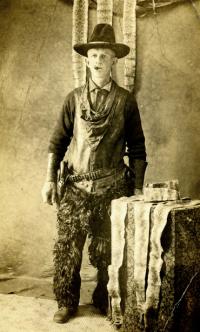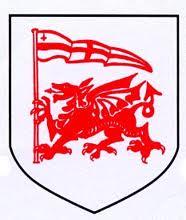Main Menu
Latest Blog Entry
User login
How to be mentally tough
“The body and mind are a team”

Andy McCann
Get the body tough and the mind will follow. A certain mental toughness is required to put on your running shoes and take that first step out on a dark winter’s night to get fit.
I have talked previously about the importance of habits and how to form good ones. That was mainly about physical acts, but what about mental toughness? Can that be trained and improved? I believe it can, and a recent workshop I attended with Andy McCann helped shape some ideas.
The Four C Model

Tough in the Old West
Andy started by looking at the Four Cs model of developing mental toughness:
Control: Emotional and life.
Confidence: Personal, Interpersonal. Dealing with adversity.
Challenge: Seeing opportunities rather than threats.
Commitment: Tenacity.
These qualities can be developed. It is our responsibility as coaches to ensure that we create the right environment and scenarios to help our athletes.
Not all are born snake hunters.
“People make it happen”
Andy is an experienced practitioner, and his advice around implementing the structure of the workshop was sound.
He mentioned using “Hot and Cold debriefs” for analysing performance. The Hot debrief is immediate when memories are fresh and emotions high. The Cold debrief is a more analytical approach later on.
He emphasised how goal setting can assist athletes with mental toughness. Bill Sweetenham uses a “1,2,3” approach to goal setting with “easy, challenging and in the distance/ unrealistic” levels. By achieving the easy goals, the athletes efforts are rewarded, but they are then challenged further.
Andy defined mental toughness as “Getting people to do in competition what they do in training” and then repeating the process. I did add that people should strive to do personal bests in competition, so it is habits and processes that are repeated, but the outcomes should be higher.
Mentally Tough in the Shower
 The last section of the workshop looked at aspirational toughness: what are we trying to improve upon?
The last section of the workshop looked at aspirational toughness: what are we trying to improve upon?
- In the moment toughness.
- Turnaround toughness.
- Endurance toughness.
- Decision making toughness.
Andy said his role was to help people switch off so that they can maintain peaks when they are needed. He likened it to a shower: you can turn it on and off, but you can also adjust the temperature.
Being “switched on” at full temperature is unsustainable. Having the ability to adjust your focus and concentration is a skill that can be developed.
Summary
A useful workshop that explored some ideas and structure in helping develop mental toughness. I often see coaches “beasting” players to develop toughness (or at least the capacity to withstand mind numbingly dull training sessions, or now GRIT training) without giving assistance or skills to help the athletes.
Research Review on Mental Toughness
A review of the maintenance of mental toughness in elite performers found that 3 things were required:
- a desire and motivation to succeed that is insatiable and internalised
- a support network that included sporting and non sporting personnel
- effective use of basic and advanced psychological skills
So this looks like toughness is an innate ability, but training in the right environment, with the right help, and with some education on basic skills will enable you to enhance that ability.
Client Testimonials
 London Welsh RFC
London Welsh RFC
James has provided a wealth of experience and expertise to the Academy set up at London Welsh RFC in recent years. He has addressed both the physical and mental development of the players through innovative, player and position specific programmes which have resulted in each individual within the group developing towards their potential.
More


Comments
[…] Read more on how to develop Mental Toughness here […]
[…] How to be mentally tough […]